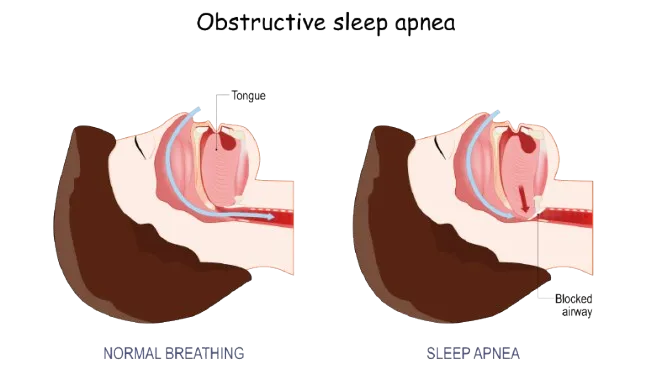Picture this: as night falls, most people unwind and slip into peaceful sleep. Sleep is where our body and mind rest. It should rejuvenate us. But have you ever noticed unusual sleep behaviors? Maybe it’s teeth grinding, mumbling, or snoring.
These quirks may seem harmless, but they could be signals about your health. Here are four sleep habits you shouldn’t ignore.
Teeth Grinding While Sleeping: A Sign of Stress or Health Issues?
Do you grind your teeth at night? That “grinding” sound can seem harmless. But frequent teeth grinding (bruxism) may signal a problem. Many people don’t realize they are grinding their teeth. Yet, it can disturb anyone nearby.

Occasional grinding is normal. But if it happens often, it could indicate a medical issue. Bruxism is linked to jaw misalignment, nerve problems, or stress. If untreated, it can cause tooth damage, jaw pain, headaches, and even temporomandibular joint disorders (TMD). This could lead to pain in the jaw, head, and neck.

Interrupted Snoring: Watch Out for Sleep Apnea
Occasional snoring is usually harmless. But when snoring pauses, it could be a sign of obstructive sleep apnea (OSA). OSA causes your breathing to stop temporarily during sleep. It can lead to dizziness, headaches, and daytime fatigue.
OSA not only disrupts sleep but also increases the risk of heart disease, stroke, and metabolic disorders. People with OSA are 250% more likely to be involved in accidents due to fatigue. If you or your partner snore and stop breathing, see a doctor for a sleep study.

Excessive Night Sweats: Could It Be a Sign of Underlying Conditions?
Waking up drenched in sweat, even in a cool room, is common but often ignored. This condition, called night sweats, could signal serious health problems. Causes include infections, hormonal disorders, or neurological diseases.
Common triggers include medications (like fever reducers), infections such as tuberculosis or HIV, and conditions like diabetes or hyperthyroidism. If you experience night sweats for weeks, consult a doctor for further evaluation.

Frequent Nightmares: Stress or Emotional Health Issues?
Everyone dreams, but frequent nightmares can be a red flag. If you wake up tired after disturbing dreams, stress or trauma could be to blame. Studies show that unresolved emotions can cause nightmares.
If you wake up often from nightmares, consider whether recent stress is the cause. Nightmares alone aren’t a serious concern. But if they persist, seek help from a healthcare professional to improve sleep quality.

Conclusion: Paying Attention to Your Sleep
Sleep is meant to restore your body and mind. But if disrupted by habits like teeth grinding, interrupted breathing, night sweats, or nightmares, pay attention. These could signal deeper health issues. Don’t ignore what your body is telling you. Seek help to keep your health on track.



















